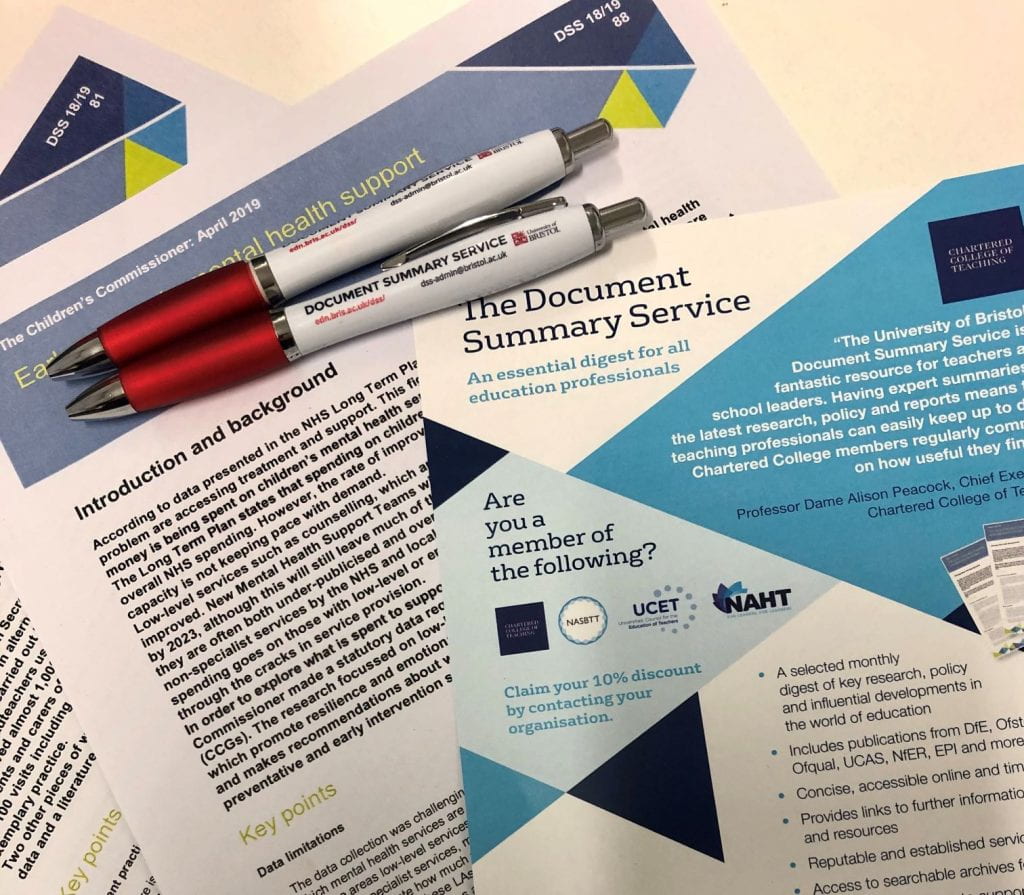Blog post by Helen Aberdeen, Director of the Document Summary Service
What a Spring term it turned out to be for those of us in the education sector! In my role as a PGCE tutor I have been on a steep learning curve getting to grips with all things online. In my other role as Director of the Document Summary Service, things have carried on a more even keel. As we moved into March I had wondered if every report research and guidance report produced would be focussed on the current crisis, but this turned out not to be the case – interesting and useful reports continue to emerge from a wide range of sources. I should also mention that the summaries have become an invaluable resource as out student teachers move to working independently.
In keeping with my last blog, I would like to present a ‘Top Ten’ – the summaries which have received the greatest number of downloads over the last 3 months. There are always one or two surprises for me when I receive the statistics, but I love to see what interests my subscribers most.
Reports from Ofsted, the Education Policy Institute (EPI) and the Education Endowment Foundation (EEF) each had two reports featured in the Top Ten. Two key reports from Ofsted – the first was the Annual Inspection report (summary 51) – always a popular download. The second, ‘Building Great Teachers’ (summary 41) reported on research by Ofsted to develop a new curriculum for Initial Teacher Training; it fed into the development of the new ITT inspection framework which will come into effect in September 2020.
Both reports from EPI focussed on mental health and wellbeing. The first (summary 49) looked at the wellbeing of the school workforce – not wall to wall good news, but an encouraging finding that ‘with the exception of teachers in further education, all educators, and especially teachers in mainstream schools, are happier, more satisfied with life, and find their lives more worthwhile than the average graduate’. A quotation to pin up on the staffroom wall, perhaps? The other EPI report (summary 45) explored children and young people’s access to mental health services, finding that although there has been some progress in recent years, we are still a long way from where we want to be.
A summary of the EEF report on behaviour (46) was our winner for the Spring quarter. A wide-ranging review of the evidence on what works and a great springboard for those wishing to explore the issue in depth. Also popular was a curricular guidance report on improving maths in the early years and key stage 1 (summary 64).
The DfE made it into second place in our Top Ten with a research report on attitudes to education (summary 53). Good to read that 47 per cent of the survey respondents in the research said that teachers worked too hard and 42 felt they were not paid enough. Perhaps after the current period of home schooling, many more will feel that our teachers are underpaid…
In addition to reports by Ofsted, we had a report about Ofsted in the Top Ten. ‘The Watchmen revisited’ (summary 62) by the Policy Exchange presents a critique both of Ofsted as an organisation and of the new Schools Inspection Framework. Subscribers obviously found it an interesting read!
In sixth place was a report from the National Foundation for Educational Research (NFER) (summary 56) which explores the links between teacher autonomy, retention and job satisfaction. The main takeaway here – leave teachers to get on with it! And in 8th place was an interesting report from the Higher Education Policy Institute (HEPI) which looked at students’ wellbeing (summary 65). Some interesting feedback here on a range of issues, including how the quality of teaching affects anxiety levels and life satisfaction – a ‘must read’ for teachers in the HE sector!
I hope that the above has given you a taste for what we at the Document Summary Service aim to provide in order to produce something of interest to educations across all phases. As I said in my last blog, we do want to be responsive – I am aware that in spite of extensive ‘summary mining’ there may be things which I miss, so any suggestions from subscribers are welcome, as is feedback. We did recently conduct some small scale research and were encouraged that the words which came up most frequently were
Do continue to follow us on Twitter @BristolUniDocs!

